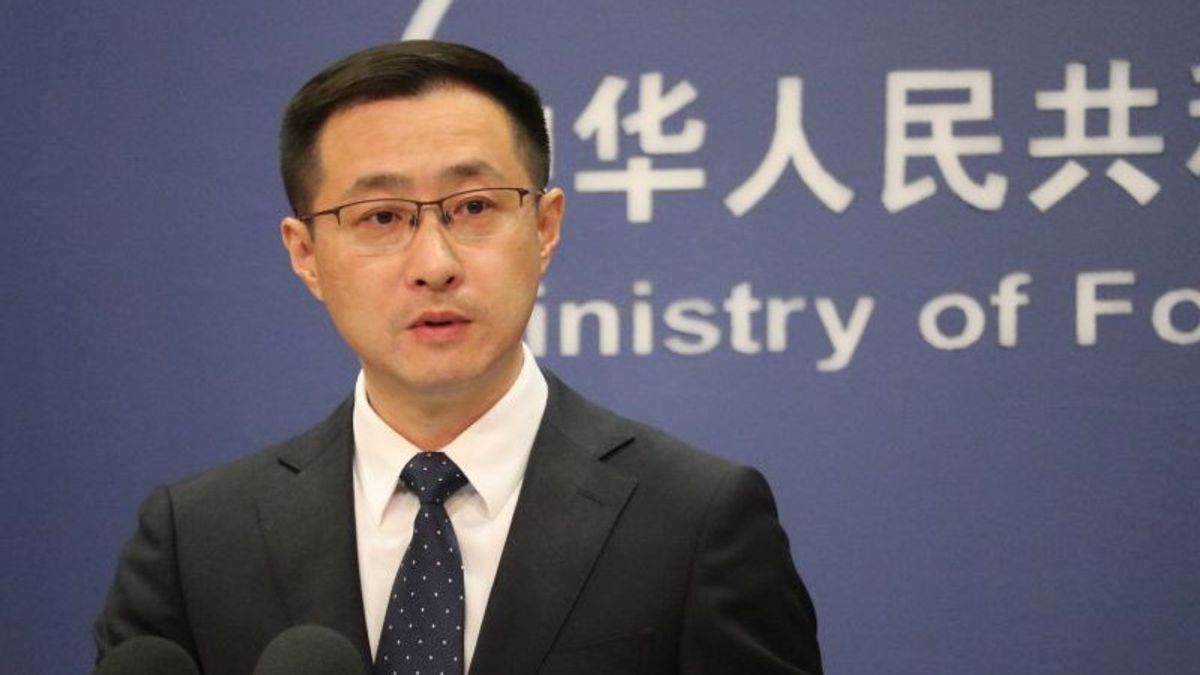JAKARTA - July 12 marks the eightth anniversary of the verdict issued by the Court of the International Arbitration Court which was formed based on the Appendix VII of the United Nations Convention on the Law of the Sea (UNCLOS) regarding the South China Sea.
The Philippine State Department previously said that the country was again committed to enforcing the decision of the International Court of Arbitration by saying that the decision was a testament to Manila's firm commitment to the rule of law and a peaceful settlement of disputes.
In 2016, the International Court of Arbitration, at the request of the Philippines, gave a fatwa that land reclamation results in the South China Sea cannot be used as a basis for water claims because they have no legal basis.
The Chinese government confirmed its rejection of the Court of International Arbitration's decision in 016 regarding the South China Sea. China refused to recognize the fatwa because it assessed that arbitration also had no legal basis to cut off the territorial waters.
"The arbitration case was unilaterally initiated by the Philippines and violated the Philippines' commitment to China," Chinese Foreign Ministry spokesman Lin Jian said at a press conference in Beijing, China on Friday, July 12.
The problems raised in this case are outside the scope of arbitration jurisdictions that were temporarily formed at a unilateral request by the Philippines, he said.
"The court continues to take the case and issue decisions that are invalid and invalid. The Philippines violates the common understanding that has been reached with China regarding dispute resolution in the South China Sea through consultation and bilateral negotiations," added Lin Jian.
The Philippines, according to Lin Jian, violated the article on the Declaration of Conduct of Parties in the South China Sea (DOC) which stated that disputes must be resolved peacefully through consultation and negotiations by directly interested sovereign countries.
"The Philippines abuses the UNCLOS dispute resolution mechanism, ignoring China's declaration that UNCLOS says excluding maritime limit stipulation of mandatory dispute resolution procedures and insists on starting arbitration," Lin Jian was quoted as saying by ANTARA.
Lin Jian revealed China had never received or taken part in the case so the arbitration court violated the principles of state approval, and acted contrary to UNCLOS and international law in general.
"The decision given is invalid, null and non-binding. China does not accept or admit it and will never accept any claims or actions based on the decision. China's sovereign rights, rights and interests in the South China Sea are not at all affected by the decision," said Lin Jian.
Furthermore, Lin Jian said that the South China Sea arbitration was basically a political circus wrapped as legal action.
"The Philippines let itself fall into a trap created by the US and several Western countries, and became a tool for certain countries to gang up on China all at the expense of Philippine relations with China," added Lin Jian.
For a long period of time, in the interest of bilateral relations with the Philippines and regional stability, China, said Lin Jian, committed to resolving disputes related to the Philippines through direct negotiations and consultations on the basis of respecting international history, facts and law.
"We hope that the Philippines will keep its commitments, stop citing and exaggerate the illegal decision and return to the right path in bilateral negotiations for this dispute as soon as possible," said Lin Jian.
In addition, he requested that parties outside China and the Philippines not interfere in the dispute, including the United States (US) and the European Union (EU).
"America has selfishly refused to approve of UNCLOS, but has often lectured other countries about the implementation of UNCLOS. This is defamation, double standards and selective application of international law. The US and EU ignore history and facts about the South China Sea issue, act contrary to the UN Charter, and misinterpret UNCLOS and other international law," Lin Jian explained.
The US is also considered to have reneged on its public commitment not to take a position on sovereignty issues in the South China Sea, prompting the Philippines to launch arbitration in the South China Sea, and publicly issued a statement in support of the decision.
"China will work closely with ASEAN countries to keep the South China Sea peaceful and stable, and contribute to the prosperity and development of the region. We urge countries outside the region led by the US to seriously respect these efforts, refrain from statements and actions that disrupt regional peace and stability, and stop being troublemakers in the South China Sea," said Lin Jian.
The Chinese government claims to have sovereign and jurisdictional rights over an archipelago called "Nanhai Zhudao" in the South China Sea consisting of Dongsha Qundao, Xisha Qundao, Zhongsha Qundao and Nansha Qundao and the surrounding waters.
SEE ALSO:
In particular, China and Kirana are often involved in open conflict on a coral island called China under the name "Ren'ai Jiao", while the Philippines is referred to as "Beting Ayungin", which is part of the Spratly Islands disputed by the two countries, as well as several other Southeast Asian countries.
The Philippines has placed the BRP Sierra Madre warship as a "floating headquarters" for the Philippine coast guard on the reef since 1999.
The Philippine government, which is a close ally of the United States (US), has granted access to US military presence at four bases in the country so that it can deal directly with the Chinese military which is actively present in the South China Sea and even overshadowing Taiwan.
The English, Chinese, Japanese, Arabic, and French versions are automatically generated by the AI. So there may still be inaccuracies in translating, please always see Indonesian as our main language. (system supported by DigitalSiber.id)












